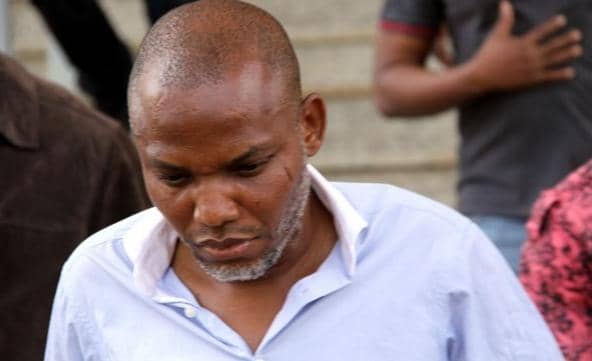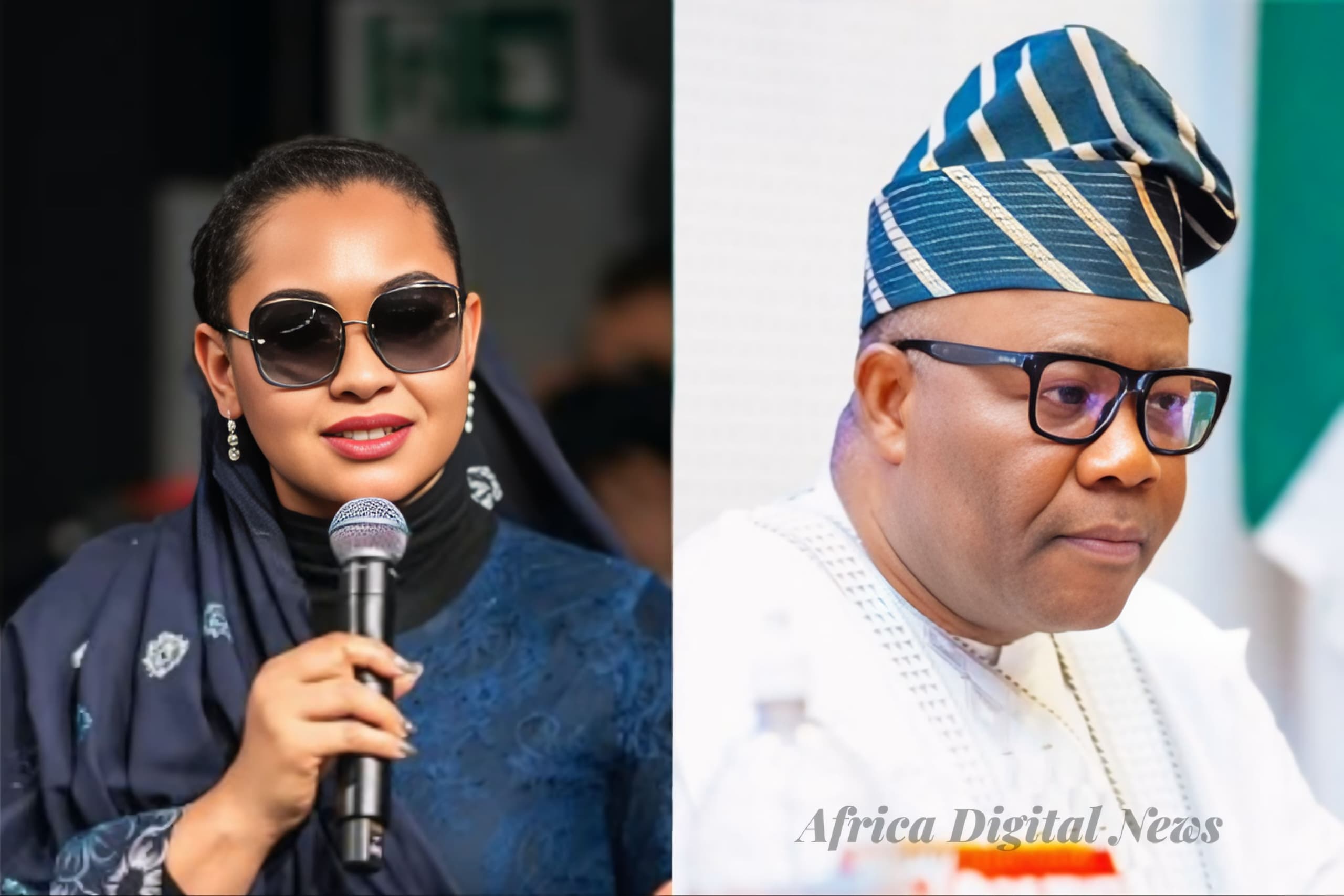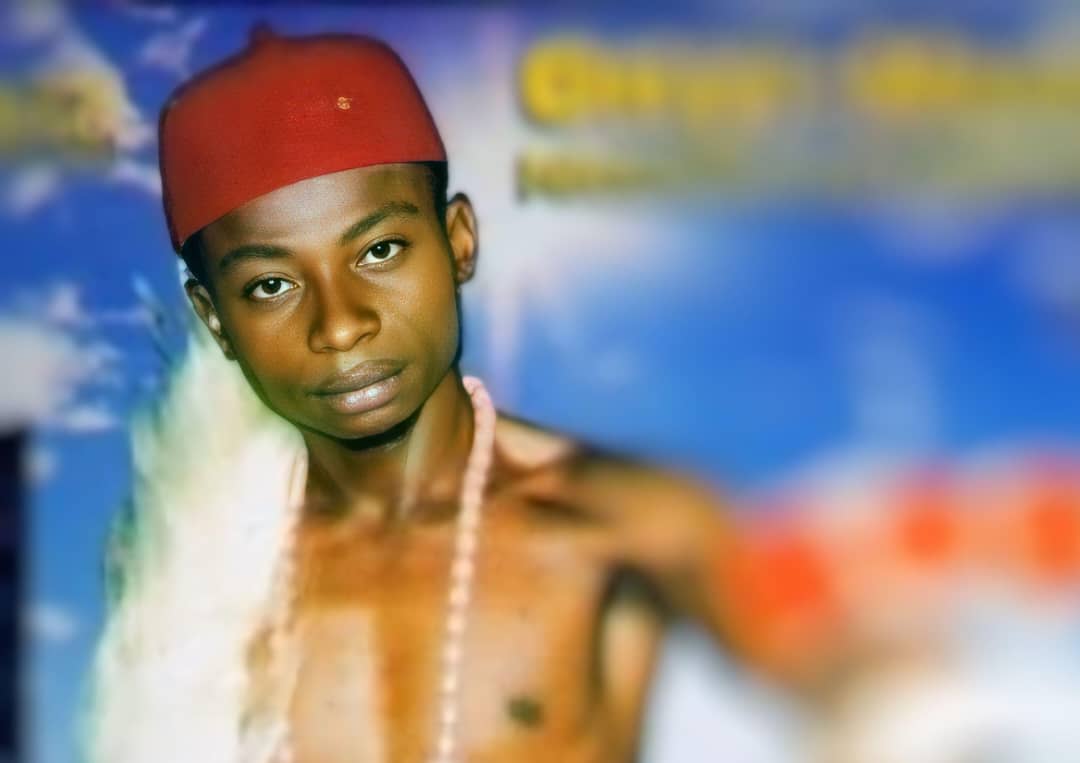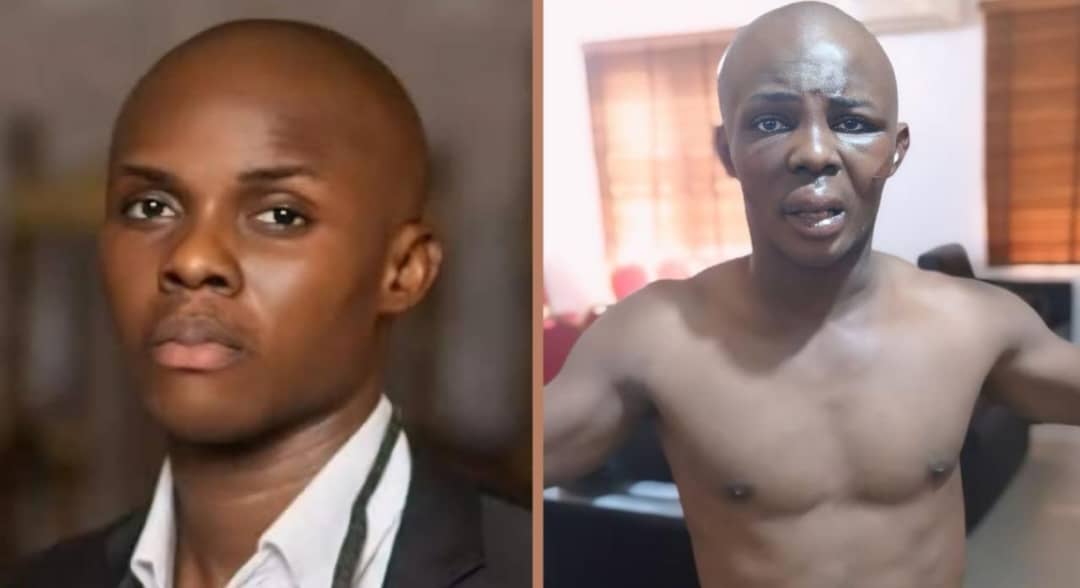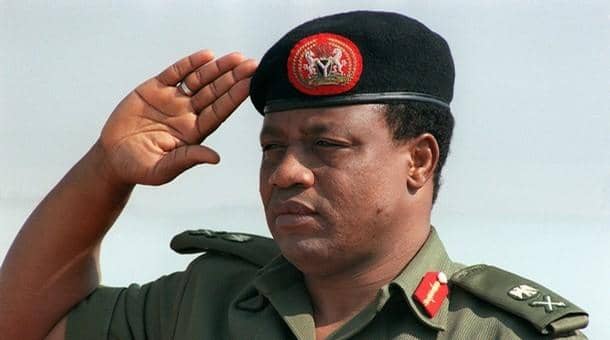The incarceration of Mazi Nnamdi Kanu, leader of the Indigenous People of Biafra (IPOB), remains one of Nigeria’s most contentious political and legal issues. While the government defends his detention as a measure to maintain national unity, critics argue that it not only violates fundamental human rights but also comes at a significant economic and security cost. The prolonged legal battle and associated instability have led to declining investor confidence, deepened regional unrest, and exacerbated the fragile socio-economic fabric of Nigeria. Beyond the legal and political dimensions, the ripple effects of Kanu’s detention extend into economic stagnation, deteriorating public trust, and escalating security crises.
In Nigeria’s turbulent socio-political environment, few issues spark as much debate and controversy as the incarceration of Nnamdi Kanu. To many Nigerians, Kanu is more than just a political dissident; he is a symbol of a longstanding struggle for self-determination and justice. Yet his prolonged detention has also become a lightning rod for criticism, with many arguing that his unjust incarceration is inflicting severe financial losses and undermining national security. This article explores the human and economic dimensions of this complex issue, positing that the fallout from Kanu’s incarceration extends far beyond the courtroom, affecting investor confidence, political stability, and the very fabric of Nigerian society.
Economic Consequences of Political Incarceration
Political instability is one of the foremost deterrents to economic growth, and Nigeria’s handling of Kanu’s case has only amplified this reality. Investors, both local and international, are deeply influenced by a nation’s political climate. Countries with perceived judicial and political fairness attract foreign direct investment (FDI) at higher rates than those with histories of arbitrary detention and political persecution (Ehighebolo & Braimah, 2020). The incarceration of a prominent political figure like Kanu sends a troubling message about governance, rule of law, and political stability, discouraging much-needed capital inflow.
The financial losses stemming from political instability in Nigeria have been significant. Between 2017 and 2023, FDI into Nigeria decreased by nearly 30%, largely due to growing security concerns and uncertainty surrounding governance (Ibrahim & Dauda, 2024). Investors hesitate to commit resources to regions with unresolved political crises, as seen in the consistent decline of investments in Nigeria’s southeastern states, where IPOB’s agitation has led to frequent civil unrest (Worimegbe et al., 2019). Many multinational corporations operating in Nigeria have downsized or halted expansion due to these uncertainties, resulting in increased unemployment and reduced economic productivity.
Further exacerbating the economic damage is the impact on local commerce. Business activity in Nigeria’s southeastern states has suffered due to frequent demonstrations, lockdowns, and security crackdowns. Since 2021, businesses in major commercial cities such as Onitsha and Aba have reported losses exceeding $1 billion annually due to IPOB-related protests and state-imposed curfews (Ajide, 2020). These economic losses directly translate into job cuts, lower tax revenue, and reduced disposable income for millions of Nigerians.
Security Implications of Kanu’s Incarceration
Nigeria’s fragile security environment has only worsened in the wake of Kanu’s imprisonment. The federal government’s refusal to engage in dialogue with IPOB has fueled the group’s radicalization, leading to increased violent confrontations between security forces and separatist elements. Studies have consistently shown that prolonged political incarcerations, especially those perceived as unjust, lead to increased militancy and civil disobedience (Sabo et al., 2023). Kanu’s case exemplifies this pattern: rather than quelling IPOB’s influence, his imprisonment has galvanized support for the movement, increasing violent clashes and exacerbating instability in the region.
Read also: The Imperative For Global Action: The Case Of Nnamdi Kanu
Research on political institutions and security confirms that governments that rely on force rather than dialogue to resolve political disputes often face protracted insurgencies (Ewalefoh, 2020). In Nigeria, IPOB’s agitation has led to a rise in armed confrontations with security forces, resulting in numerous casualties and further straining the country’s already overstretched military and police units. According to a 2023 report, IPOB-related violence has accounted for nearly 30% of all politically motivated killings in Nigeria over the past two years, demonstrating the direct correlation between Kanu’s incarceration and rising insecurity (Nwefoh et al., 2020).
Beyond IPOB, the broader implications for national security are dire. When citizens perceive the justice system as biased or repressive, it weakens public trust in law enforcement institutions. The British colonial legacy of using incarceration as a tool of economic and political control continues to have lasting effects on the perception of the Nigerian justice system (Archibong & Obikili, 2020). Public disillusionment with the government fuels further instability, as disenfranchised groups resort to alternative means—including violence—to express their grievances.
The Psychological and Social Impact
The prolonged detention of political figures like Kanu does not only impact the immediate political landscape; it also carries severe psychological and social consequences for the affected communities. Research on incarceration and cognitive performance suggests that prolonged imprisonment, especially for political reasons, fosters deep-seated resentment and alienation among supporters of the incarcerated individual (Ezenwa et al., 2020). This alienation can lead to the radicalization of young people who see the legal system as an instrument of oppression rather than justice.
Furthermore, the human cost of such political detentions extends to families and communities. Families of incarcerated political leaders often face financial hardship, social stigmatization, and psychological distress. Studies show that when breadwinners are imprisoned, families experience heightened levels of economic vulnerability, leading to increased poverty and social instability (Sabo et al., 2023). In the case of Kanu, many of his followers view his incarceration as a direct attack on their ethnic and political identity, reinforcing divisions and eroding national unity.
The Need for Legal and Political Reform
The resolution of Kanu’s case is not just about one individual—it is about the broader integrity of Nigeria’s democratic and legal institutions. Addressing this issue requires comprehensive judicial and political reforms to restore public confidence in governance and security structures. A fair and transparent judicial process, untainted by political considerations, is crucial in restoring faith in Nigeria’s legal system (Ehighebolo & Braimah, 2020).
Many political analysts argue that a negotiated settlement between the government and IPOB could reduce violence and foster long-term stability (Ewalefoh, 2020). Nations that have successfully de-escalated political crises have done so through strategic engagement rather than outright suppression. In South Africa, for instance, the release of political prisoners during apartheid played a crucial role in national reconciliation and economic recovery (Ajah et al., 2020).
A major step toward resolving the Kanu crisis would be the establishment of an independent judicial panel to review politically sensitive cases. Ensuring that legal decisions are free from political influence would not only bolster Nigeria’s international reputation but also encourage economic growth by reassuring investors of the country’s commitment to justice and stability (Nwefoh et al., 2020). Additionally, a shift toward inclusive governance—where ethnic and political grievances are addressed through constructive dialogue rather than repression—would go a long way in fostering national unity.
Conclusion: Rebuilding Nigeria Through Justice
The prolonged incarceration of Nnamdi Kanu is a microcosm of Nigeria’s larger governance and security challenges. While the government argues that his detention is necessary for national unity, evidence suggests that the economic, security, and social costs far outweigh any perceived benefits. From declining investor confidence and economic stagnation to escalating violence and deepening social divisions, the ramifications of this case extend far beyond Kanu himself.
To chart a new course, Nigeria must adopt a more inclusive approach—one that upholds justice, fosters dialogue, and prioritizes national stability over short-term political gains. By addressing the root causes of political unrest and ensuring fair legal proceedings, the nation can begin to rebuild trust, stimulate economic growth, and create a more secure and unified future. In the long run, justice, fairness, and transparent governance remain the most potent tools for achieving sustainable peace and development.
References
Ajah, A., Uche, U. & Okiriaja, M. C. (2020). The structure of the Nigerian economy and electoral violence: Implications for political participation in Nigeria. International Journal of Innovative Research and Development
Ajide, F. (2020). Impact of economic condition on crime rate in Nigeria. The Journal of Developing Areas
Archibong, B. & Obikili, N. (2020). Prison labor: The price of prisons and the lasting effects of incarceration. SSRN Electronic Journal
Ehighebolo, I. A. & Braimah, M. O. (2020). The role of political institutions in economic growth and development of Nigeria. Journal of Economics and Sustainable Development
Ezenwa, M., Orjiakor, C. & Onu, D. U. (2020). Incarceration impacts cognitive performance, and prisoner status matters. The Journal of Forensic Psychiatry & Psychology
Ewalefoh, J. O. (2020). The political economy of insecurity in Africa: Focus on North East, Nigeria
Ibrahim, L. O. & Dauda, A. (2024). Insecurity and its implications on economic development in Nigeria. International Journal of Research and Innovation in Social Science
Nwefoh, E. et al. (2020). Depression and experience of incarceration in North Central Nigeria. International Journal of Mental Health Systems
Sabo, S. Y., Apake, F. L. & Samuel, M. M. (2023). Socioeconomic implications of long-term incarceration in Nigeria. Journal of Institute of Africa Higher Education Research and Innovation (IAHERI)

